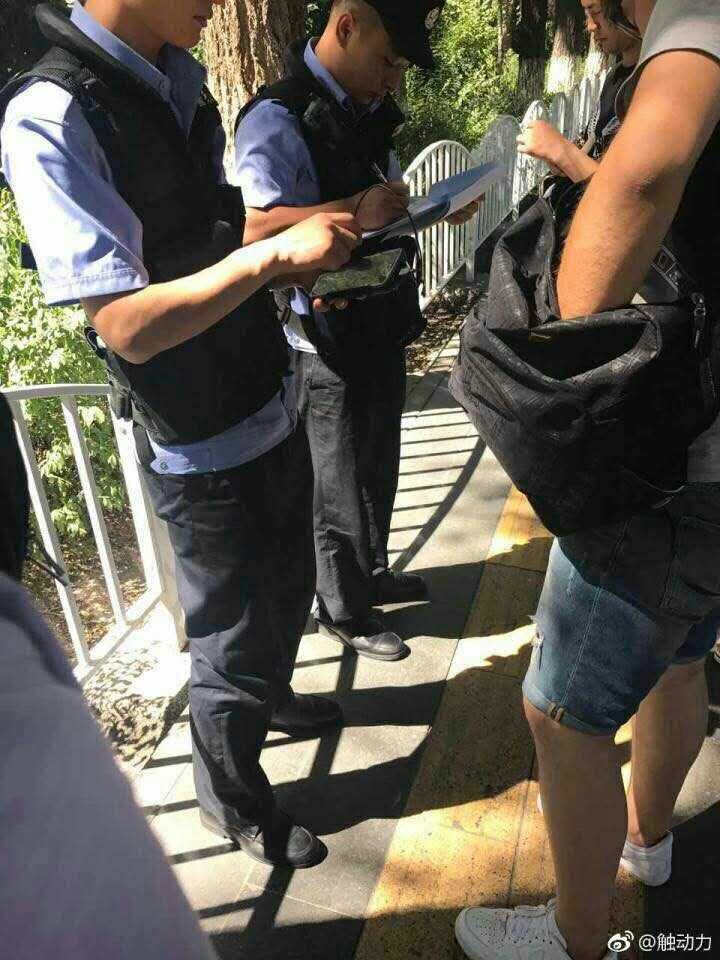In Xinjiang, China, police have set up checkpoints to ensure that the government-mandated “Jingwang” spyware is installed

In Xinjiang, China, citizens are being forced to install a targeted surveillance mobile app called Jingwang. Additionally, the government has set up random checkpoints on the streets to check whether the spyware is properly installed on your smartphone. On July 10th, mobile phone users in the region received a notification letting them know that they had 10 days to download and install the Jingwang spyware. Failure to install the app is punishable by up to 10 days imprisonment, according to the notice. According to the government, the spyware app has benign functions:
The main function is to block pornographic websites, online scams, trojan horses, and phishing sites; to alert users of how much time they spend online; and to enable remote control of one’s home network. The tool is intended to help kids develop a healthy lifestyle by building a safe web filter for the minors.
However, users have noted that the spyware also searches through your phone’s storage and checks the hashes of media files to make sure that you aren’t holding any illegal images. The same technology is used to censor images and memes as they are sent while using Chinese instant messaging services.
Civil liberties in China are fast becoming nonexistent
Chinese activists on Twitter spread the news of Jingwang checkpoints outside of China:
Authorities from Xinjiang are checking to make sure that people are using the official Jingwang application. A mobile notification demanded people install the app within 10 days. If they are caught at a checkpoint and their devices do not have the software, they could be detained for 10 days. This is a setback on the development of technology. They forced people to use devices designed for the elderly. It is a form of confinement by through surveillance technology. We are back to Mao’s China.
The Xinjiang region has long been a hotbed of political unrest and somewhat of a testing ground for the most stringent of Chinese censorship both on the ground and online. The ethnically Turkish, and religiously Muslim, Uyghurs have been treated as second class citizens in China and a separatist movement continues to grow. Targeting the flow of free information, free speech, and freedom of assembly has been the status quo for years now. In fact, the local government has even charged arrested locals for using a VPN – claiming that a VPN is “secondary terrorist software.” Recently, the Chinese government has even expanded it’s VPN shutdown to other provinces besides Xinjiang.
In June, as noted by Freedom House, local authorities also notified residents that they need to submit personal devices, hard drives, computers, etc for personal inspection and registration by August 1st. Maya Wang, a researcher with Human Rights Watch, told Mashable:
“Chinese police are so powerful, particularly in Xinjiang, [that] anyone being stopped is unlikely to be able to refuse the police’s requests. The authorities have a lot of explaining to do about this software, including what it does. While the authorities have the responsibility to protect public safety, including by fighting terrorism, such mass collection of data from ordinary people is a form of mass surveillance, and an intrusion to privacy.”
The dystopian future is already here for some Chinese.
Featured image from 即时中国大陆映像 .
Comments are closed.

Hey guys, you might want to know that I can’t post links on LinkedIn to your blog. I’m able to link your domain https://www.privateinternetaccess.com/ but anything with https://www.privateinternetaccess.com/blog/ gets removed. I’m filing a complaint with LinkedIn to fix this.
Thanks so much for bringing this to our attention.
on LineageOS it is simple – set privileges in privacy guard ( prefferably script which turns on “govt” mode before the control) and set it back after it
I am not sure they people will be so techy…
According to some sources, up to 1/3 of Chinese use VPN so there should be at least some people out there that are that techy.
I had used VPNs in China but this is on other level. Flashing LineageOS etc is not easy for a layman. VPN is still easy for many people. Not all devices support this. I think many people will switch to iOS
how is switching to iOS really going to help. They could compromise iOS as well.
very hard to arm twist apple in that way. They are only able to block apps on apple appstore for China till now.
There is already software that exists to infect iPhones pretty much anyway. They don’t need Apple’s permission.